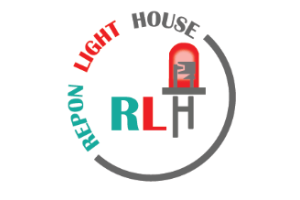Alcohol allergies: Symptoms, treatments, and alcohol intolerance

Certain genetic factors can predispose individuals to an overactive immune response when exposed to alcohol. At HeyAllergy, we specialize in customized sublingual immunotherapy tailored to your specific needs. Our telemedicine platform makes it easy to consult with allergy specialists from the comfort of your home.

What Causes Alcohol Allergy Rash?
Questions may focus on your drinking habits, symptoms experienced after drinking alcohol, and whether family members have similar reactions. The first step in managing an alcohol allergy is understanding the condition. Allergies, including alcohol allergies, are exaggerated immune responses to harmless substances, or allergens. Therefore, it’s essential to know your triggers and monitor your body’s reactions to different types of alcohol. Sublingual immunotherapy is a less common treatment option for alcohol allergy.
How can you treat alcohol allergy?
Individuals with a family history of allergies or a personal history of allergic reactions are more likely to develop an alcohol allergy. In addition to these standard allergy tests, doctors may use a food challenge test. This involves consuming a small amount of alcohol under medical supervision to see if symptoms develop.

Allergy Testing

If an allergy to an ingredient in alcohol is suspected, an allergy test may be recommended. A blood allergy test, also called a specific IgE test, is a powerful diagnostic tool that can pinpoint what allergen may be causing your symptoms. This test measures the concentration of IgE antibodies in the blood that indicates a sensitization to a specific allergen. It could be the grains in beer or those lovely fruit notes in wine. If a person thinks they have an alcohol allergy, they should eliminate alcohol from their diet and consult with a healthcare professional.
A histamine is a chemical that the body releases in response to allergy, inflammation, or injury. If you have histamine intolerance, you lack a digestive enzyme called diamine oxidase, which helps your body break down excess histamine. Examples of conditions that can cause alcohol intolerance alcohol allergy or sensitivity are outlined below. It is an inherited disorder, so it was passed down to you from your parents.
- In some cases, they might use an oral challenge test to diagnose an allergy or intolerance.
- However, standardized skin testing using different types of alcohol is not currently available.
- Yes, an alcohol rash typically goes away once the alcohol is completely metabolized and removed from your system.
- Skin tests involve applying a small amount of a suspected allergen to your skin using a tiny needle.
If your body doesn’t produce enough active DAO, you may react to histamine in foods and beverages. It’s also found in many foods and beverages, especially fermented products. For example, aged cheese, smoked meats, sauerkraut, wine, and beer tend to be high in histamines. It is also crucial to inform your social circle about your allergy. This includes loved ones, friends, and even restaurant staff, to ensure you avoid accidental exposure to alcohol.
This is typically due to intolerance to certain ingredients in alcohol, not the alcohol itself. Preventing an alcohol allergy involves avoiding alcohol consumption. This can be challenging, as alcohol is a common ingredient in various food, personal care products, and medications. It requires careful reading of product labels and awareness of potential hidden sources of alcohol.
Genuine alcohol allergies, in which people Sober living home only react to the alcohol, are much less frequent. However, only two of the 68 participants have a medically diagnosed allergy. This figure represents people whose symptoms are traceable to what the manufacturers made the product from and its production process, not the alcohol itself. Alcohol intolerance happens when the body cannot properly break down alcohol.

It’s important to only attempt this under a doctor’s guidance due to the risk of a severe allergic reaction, similar to a drug allergy. If an allergy to a certain ingredient in alcoholic drinks is suspected, an elimination diet may be recommended. This involves avoiding the suspected allergen to see if symptoms improve. Allergy tests such as skin prick or blood tests may also be conducted to identify specific allergens. A genetic predisposition to allergies can also lead to an alcohol allergy rash. Some people genetically inherit a heightened sensitivity to certain substances, including alcohol.
